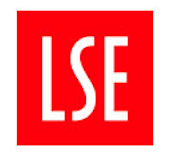Simeon Djankov is a Bulgarian economist. From 2009 to 2013, he was the Deputy Prime Minister and Minister of Finance of Bulgaria in the government of Boyko Borisov.
Prior to his cabinet appointment, Simeon Djankov was a Chief economist of the finance and private sector vice-presidency of the World Bank. He was an associate editor of the Journal of Comparative Economics from 2004 to 2009. Djankov was a chairman of the board of the European Bank for Reconstruction and Development.
During his tenure at the University of Michigan and the World Bank, Djankov published over 70 articles in professional journals. Journals include the American Economic Review, the Quarterly Journal of Economics, the Journal of Political Economy, the Journal of Finance, the Journal of Financial Economics. He has also co-edited the book Resolution of Financial Crises" with Stijn Claessens and Ashoka Mody.
After resigning from the government of Boyko Borisov, Simeon Djankov joined the Harvard Kennedy School as visiting faculty. His teaching is focused on the politics of development. During his time as Harvard, Dr Djankov edited a special issue of the Journal of Comparative Economics on the 25th anniversary from the start of transition in Eastern Europe. Jointly with Anders Aslund at the Peterson Institute, he also co-authored a book on the transformation from communism. [2] The book contains chapters by Leszek Balcerowicz on Poland, Vaclav Klaus on the Czech Republic, Lajos Bokros on Hungary, Ivan Miklos on Slovakia, and Mart Laar on Estonia.
In 2013 he was appointed rector of the New Economic School in Moscow. He is also a member of the World Bank's Knowledge and Advisory Council, and a Visiting Fellow at the Peterson Institute for International Economics. Since November 2015, Dr Djankov has been a visiting professor at the London School of Economics.
Experience
-
–presentExecutive Director of the Financial Markets Group, London School of Economics and Political Science
- Website
- Article Feed
- Joined


